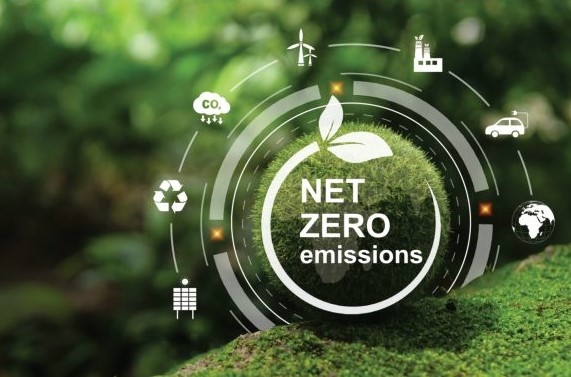Abu Dhabi, January 23, 2024: Abu Dhabi National Energy Company PJSC (TAQA) and Bloomberg Media have jointly unveiled a comprehensive global study, the 'Future of Utilities.' The study, shaped by insights from almost 600 industry experts worldwide, spotlights grid readiness as the foremost challenge impeding the realization of net-zero ambitions in the power sector.
The 'Future of Utilities' report underscores the immediate need for coordinated global action to accelerate grid development, ensuring alignment with the swift expansion of distributed renewable power generation. With over 50% of respondents identifying grid infrastructure as the principal obstacle, the study emphasizes the pivotal role of robust grid investment in achieving net-zero goals.
In addition to the grid imperative, the report suggests that utilities can propel the low-carbon energy transition by embracing more consumer-centric business models and advancing innovation and technology. The evolving landscape of the utility sector demands adaptability, with more than 90% of respondents foreseeing a period of significant change, encompassing shifts in operating models, customer relations, and a stronger focus on innovation.
According to BloombergNEF, a staggering $21 trillion in grid investment is projected by 2050 to expand and refurbish the global electricity system. The Energy Transition Investment Trends 2023 from BloombergNEF anticipates a dominance of investments in electrified transport, renewable energy, and grids from 2023 to 2030, comprising 72% of the annual combined share.
Discussing the report, Jasim Husain Thabet, Group Chief Executive Officer and Managing Director of TAQA, said, "The utilities sector is on the frontlines of the global energy system, and it is therefore uniquely placed to shape the transition to a low-carbon future. As the utilities community responds to that challenge with increased urgency, the insights from this report can serve as a lens to guide decision making and validate perspectives.”
Key Findings of the 'Future of Utilities' Study:
- Renewable Energy Grid Integration: A focal point identified by over half of the respondents, grid readiness emerges as the most significant hurdle in achieving net-zero goals, surpassing concerns related to supply chain or capital issues.
- Imminent Transformation in Utility Sector: The study indicates a consensus among respondents about an era of profound change in the utility sector, with 93% advocating for higher levels of change. This encompasses evolving operating models, customer relations, and a stronger focus on innovation.
- Shift Towards Customer-Centric Models: A discernible shift towards customer empowerment is observed, with growing expectations for consumers to generate their energy. This trend signifies a pivotal step for utilities in achieving net-zero objectives, necessitating a reevaluation of operational models to foster greater customer involvement in energy production.
- Low Confidence in Meeting 2030 Emission Reduction Targets: Only 44% of sector professionals express confidence in meeting the 2030 carbon reduction targets, emphasizing an urgent need for robust policies and innovative approaches. Regional variations in confidence levels are noted, with the KSA & UAE displaying higher optimism compared to India and Germany.
- Innovation Challenges: The report reveals that the slow adoption of innovative technologies in the utilities sector is largely due to a lack of awareness and insufficient collaboration with the tech and innovation community.
As TAQA and Bloomberg present this comprehensive study, it serves as a valuable resource for industry stakeholders, policymakers, and investors, offering insights into the dynamic shifts and challenges within the utilities sector as it navigates towards a sustainable, net-zero future.




















.jpg)



